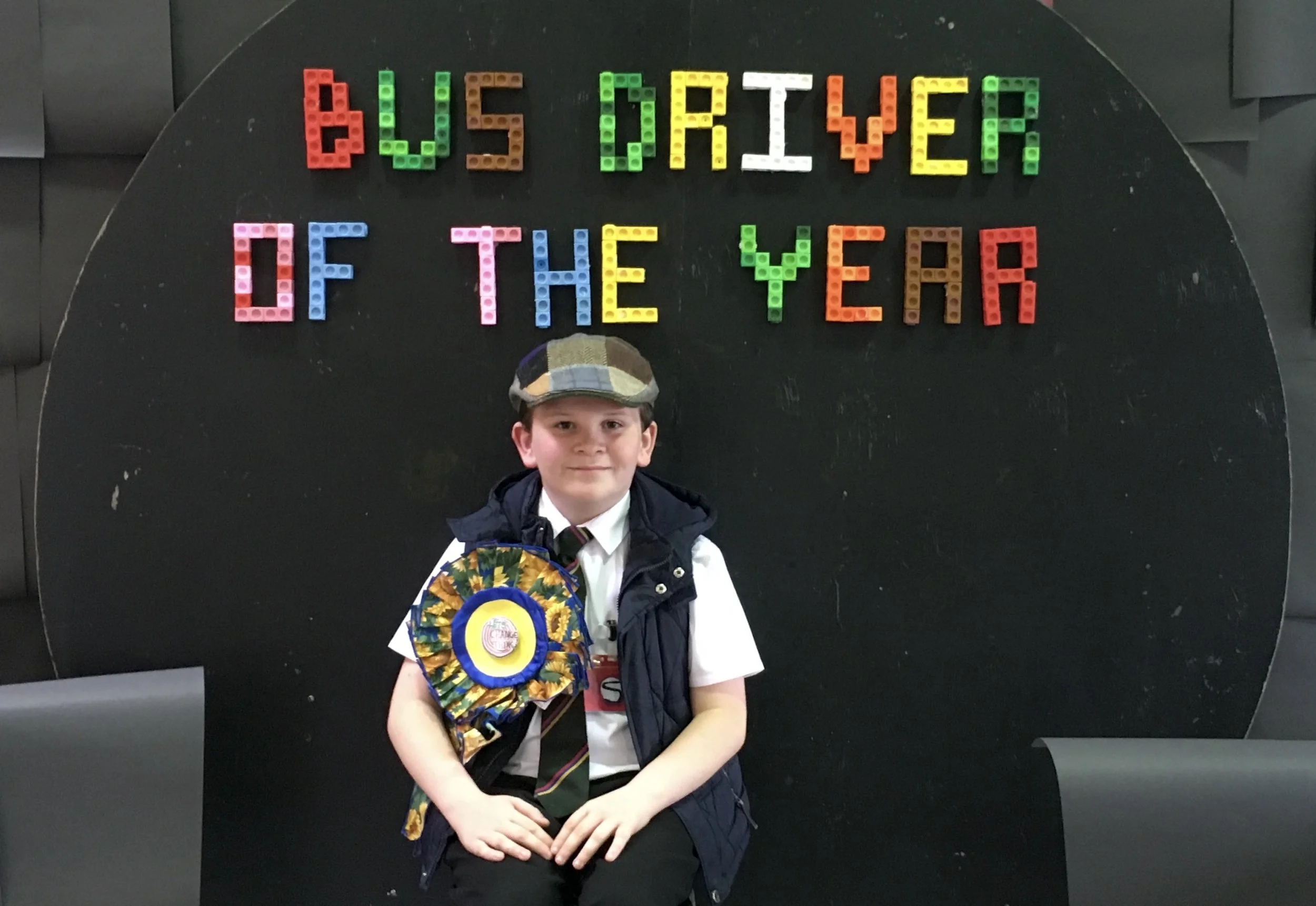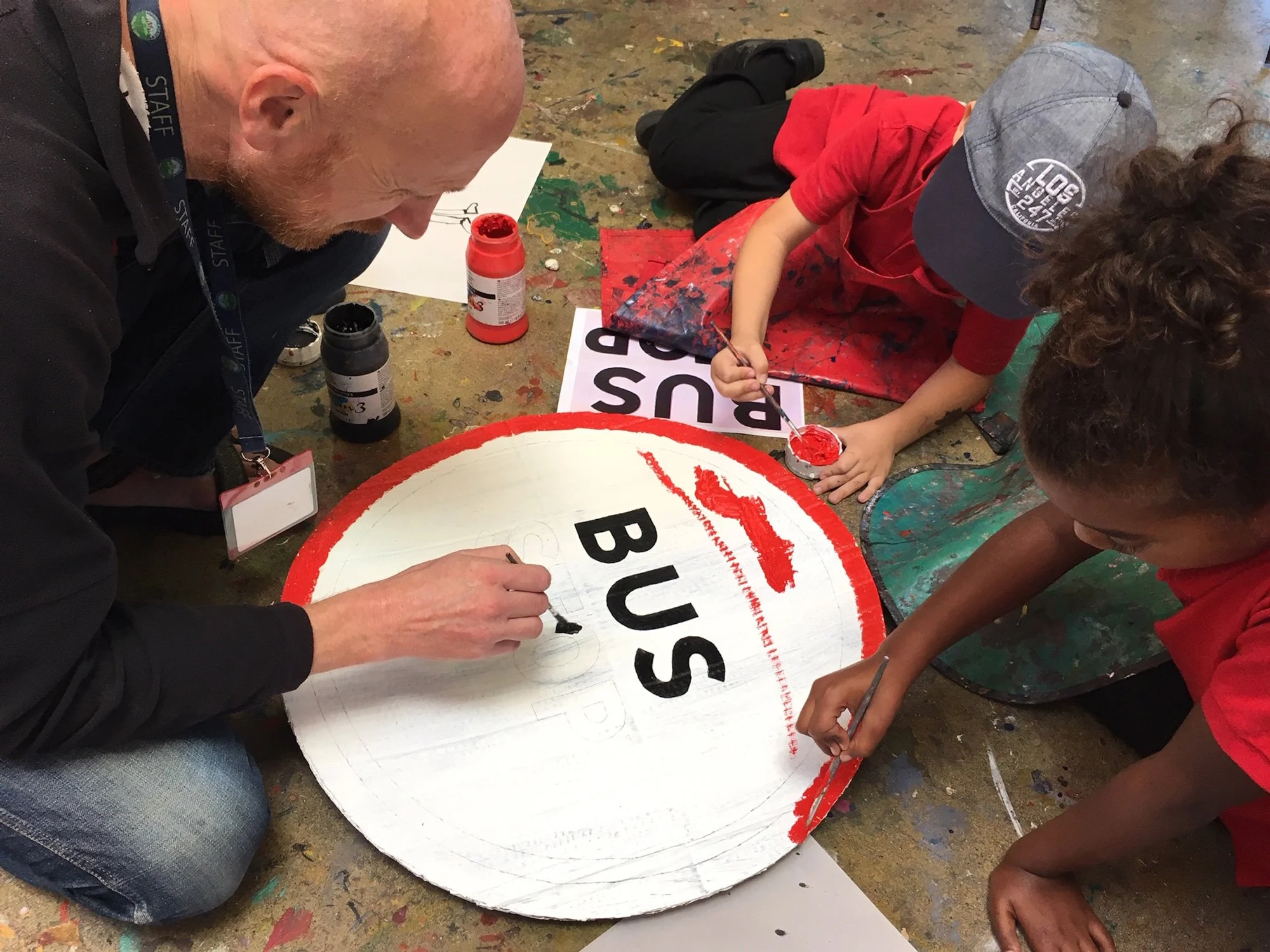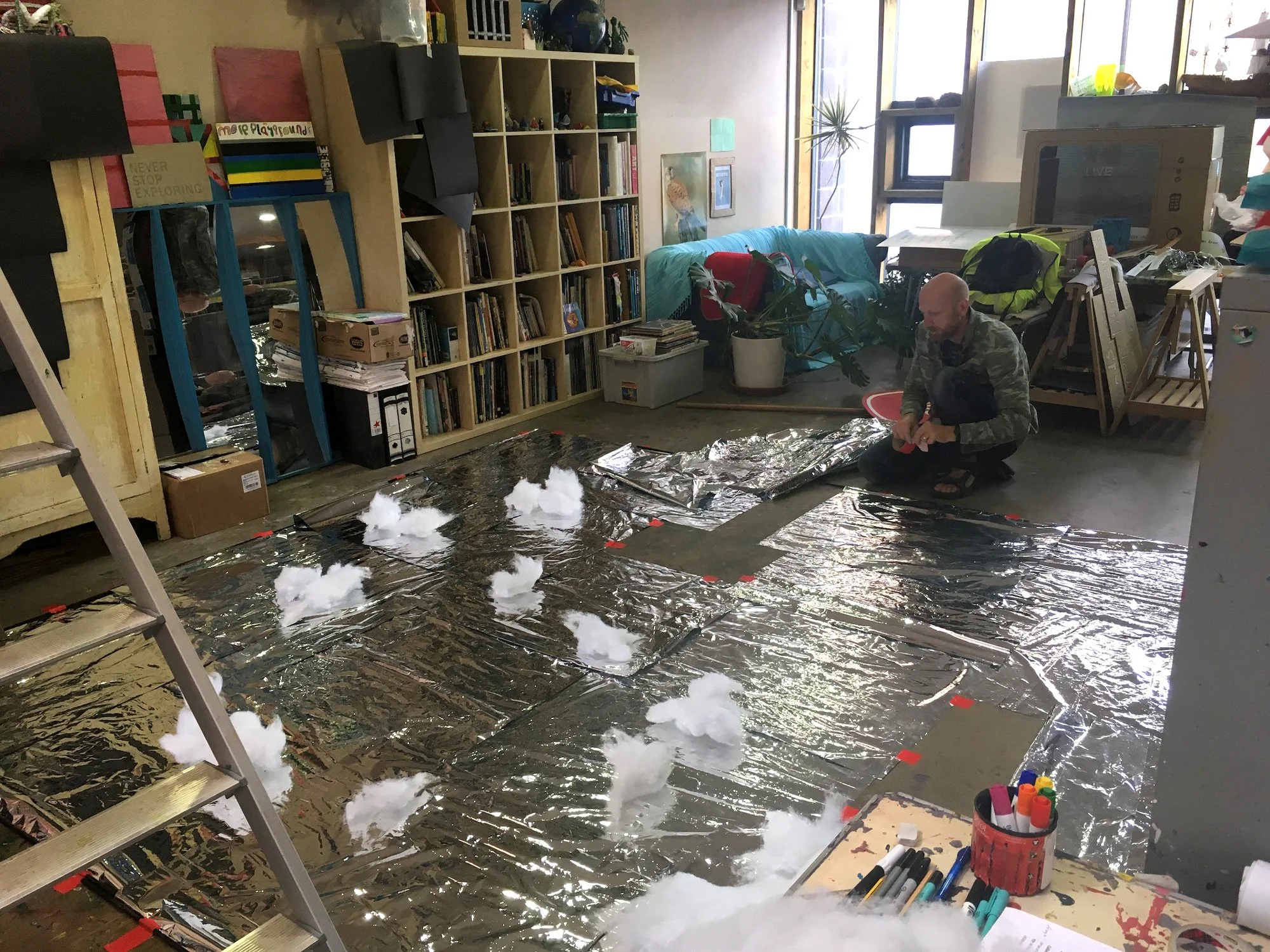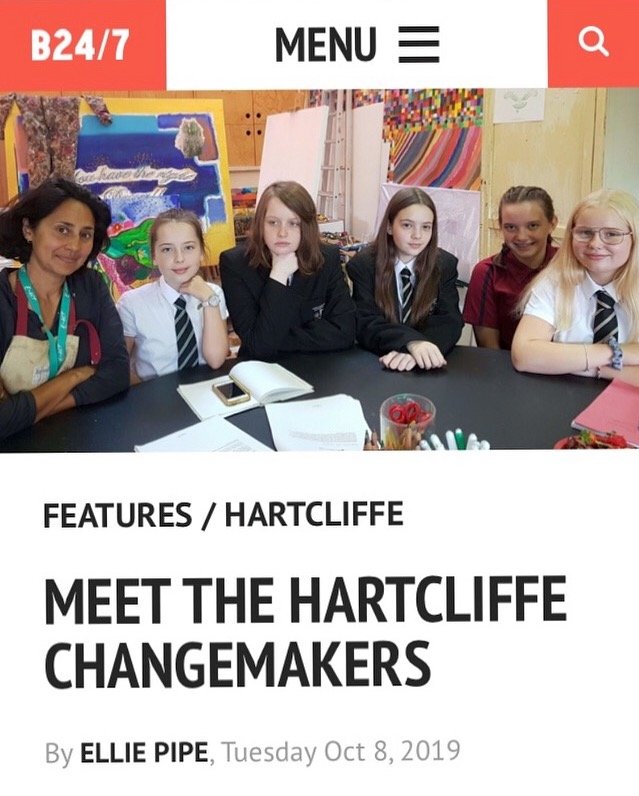The Bus Project: art and activism
In October 2017, Room 13er Mia (11) told the audience at the Festival of the Future City in Bristol about buses in her home city – a quote that is also in our film, Now’s the Time:
“My family don’t own a car and the bus fares are so expensive. Lots of people can’t get into Bristol to experience everything in the city centre. Some children have never been into Bristol, yet they only live a few miles away. So, I want to ask you: how can children grow up and enjoy their cities if they can’t get around them? And is it fair that some children can’t do this at all?”
Law Professor Antonia Layard from the University of Bristol (now at Oxford University) rose to Mia’s challenge and together we formed the Bus Project, an exciting collaboration between Room 13 Hareclive creative thinkers, makers and academics. Our aim was to research this whole area and then put our combined results – creative and research – out into the world to help change things.
You can read more below about our research, creative film-making, awareness raising, and the academic research led by Antonia and the University of Bristol.
Studio research
In the studio we kicked off with an introductory session to buses with Antonia and the Management Team, looking at issues relating to bus access from the past and how people have changed things. For example, we looked at the brave and important work of the Bristol Bus Boycott in 1963 and then later changes in disability access too.
The studio research confirmed what we the adult team have witnessed over 20 years: for most children and families, bus fares are too expensive. This means they are very limited in where they can go, with many children not having been into Bristol a few miles away, let alone seeing the major sites – suspension bridge, arts and culture centre, free events – or able to easily access health care and other central facilities.
Our film: Now’s the time – free bus travel for children
The studio’s creative response to the research is a short film raising awareness of the issues and trying to change things. Working with artist educators Shani and Paul, Room 13 children of different ages helped to conceive, create, script and act in the film, whilst also developing characters and making props.
Writing any film script starts round the table with big sheets of paper and lots of ideas and imagination. Using low-tech equipment and materials, we explore the film making possibilities. For this one, we decided to take the TV programme idea from The Sad Reality film about safer streets and used it to examine the issue of buses. The result is a young person’s perspective on what needs to change and why.
Behind the scenes…
Awareness raising
The film has been screened at schools and wider events relating to transport policy, climate change and child friendly cities. The team also got the film into the media with articles on The Hartcliffe Change Makers in Bristol 24/7, children are being deprived of feeling part of their city in the Bristol Cable, and youngsters campaign to get free bus travel in the Evening Post.
The Management Team visited Bristol City Hall to speak to a councillor on the cabinet about the project and this discussion was broadcast on BBC News Points West. Our film was then screened at a Full Council meeting and a statement by Room 13 read out. Children were commended on their work by the Lord Mayor of Bristol and the Mayor of Bristol, Marvin Rees, said he would bring forward the aim of free bus travel for children and young people in the One City Plan. Labour South MP Karin Smyth stated that free bus travel for young people was one of her priorities.
Academic research reports
Antonia’s research rigorously looked at all of the issues raised by children and parents as well as interviewing policy makers. The resulting report, Not on the Buses, summarises and analyses key findings as well as context, history, the impact on children’s education and life chances and, most importantly, possible solutions. You can read the summary and all the links on the University of Bristol Brigstow Institute Bus Project page.
What next?
Free bus travel is really about children’s equal access to so much: culture, history, friends, family, leisure, sports and clubs, free events, health services and, later, work experience and sixth forms. How can it not be central to addressing equality in education, quality of life, physical and mental health and life chances? And when will anything actually change? These questions remain unanswered and unacted upon, but matter very much to us. Watch this space…
Discover more…
-

SAFER STREETS PROJECT
-
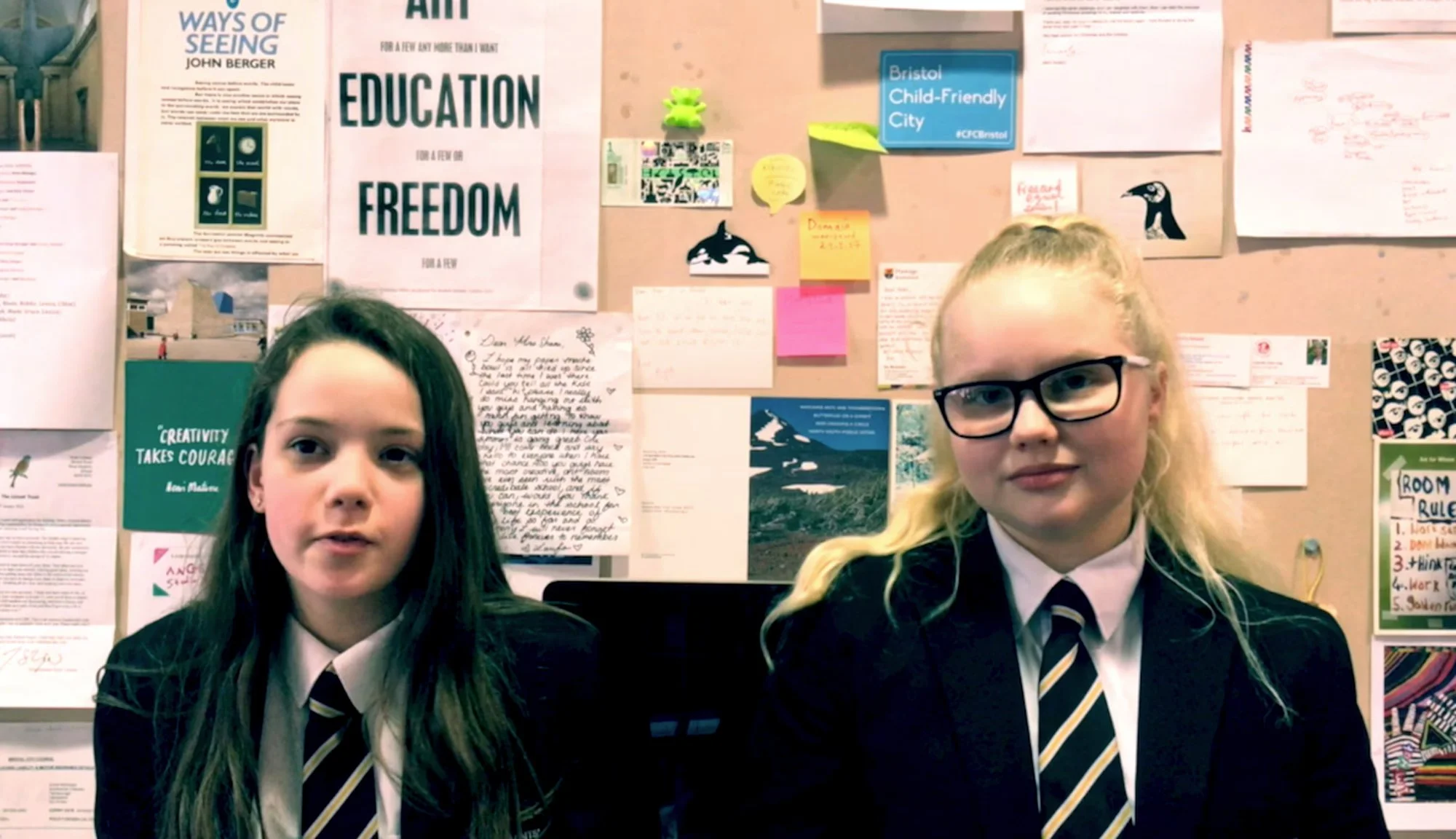
MIA AND FREYA ON SAFER STREETS
